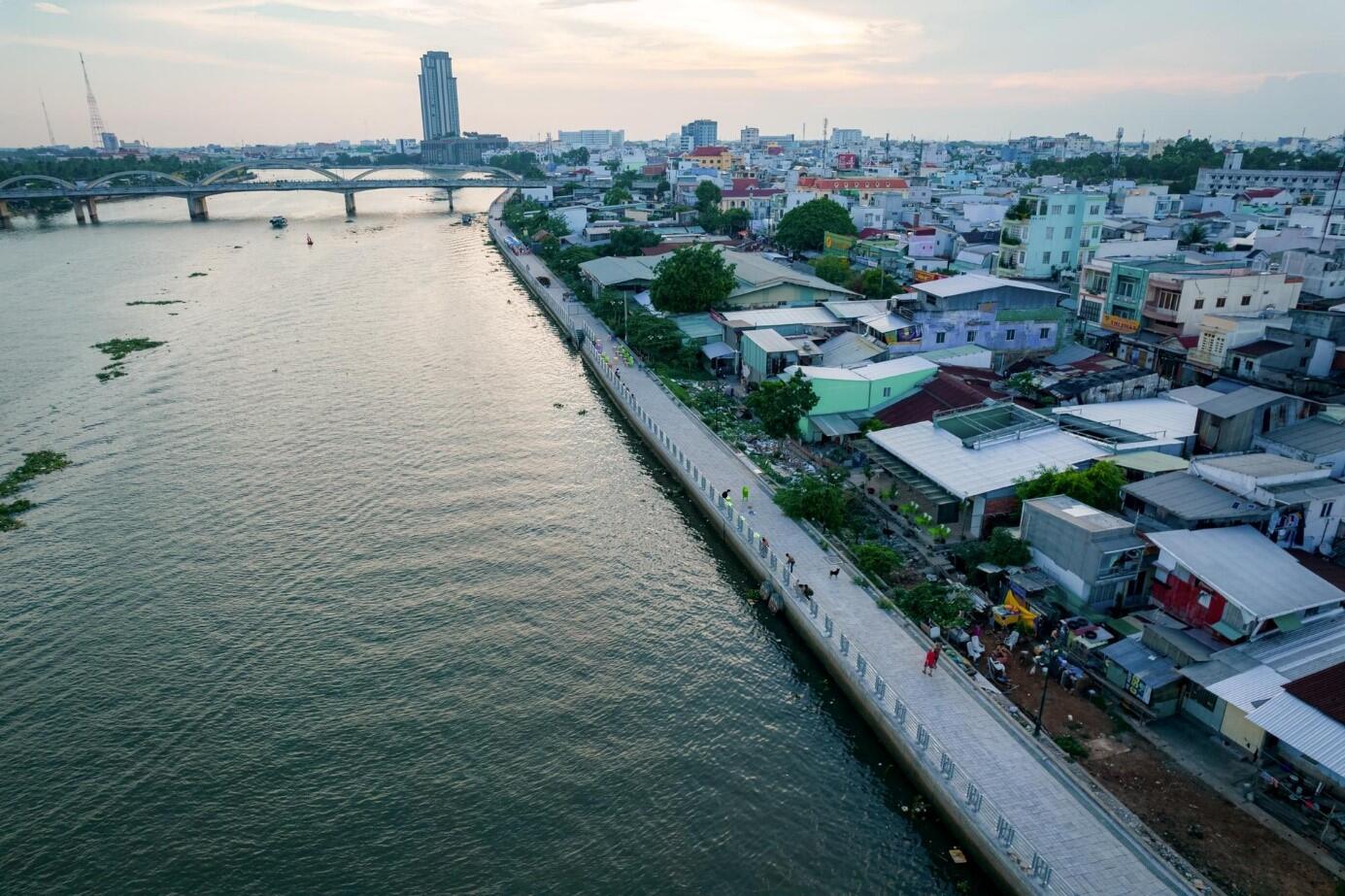At a working session with the People's Committee of Can Tho City on April 2, a delegation from Switzerland and the World Bank (WB) acknowledged that the Can Tho City Development and Urban Climate Adaptation Project is an exemplary model of effective climate change adaptation and international development cooperation. Based on the results, the WB committed to continuing support for Can Tho's next flood prevention project.
The delegation desired the project to be managed and utilized effectively in the long term. The project's success will allow Switzerland and the World Bank to strengthen their cooperation with Can Tho City.
The Can Tho City Development and Urban Climate Adaptation Project, implemented from 2016 to 2024, has a value of over 9,000 billion VND. The project focuses on implementing flood control infrastructure solutions for the core urban area of Can Tho City, covering the districts of Ninh Kieu and Binh Thuy, and enhancing urban management to adapt to climate change. The protected area is 2,675 hectares, benefiting 423,400 people, including 391,600 permanent residents (locals, students, migrant workers) and 31,800 temporary residents (tourists, patients).
 From the project, embankments, tide-prevention sluices, and pumping stations were built along the Can Tho and Khai Luong rivers to help the Can Tho urban area escape flooding.
From the project, embankments, tide-prevention sluices, and pumping stations were built along the Can Tho and Khai Luong rivers to help the Can Tho urban area escape flooding.The project is carried out in three components.
Component 1: Flood control and environmental sanitation. This component aims to reduce flood risks in the central urban area of Can Tho City by providing support for priority investments in flood control in Ninh Kieu and Binh Thuy districts, including the construction of embankments and the restoration of urban roads; rehabilitation and upgrading of canals, drainage systems, and environmental sanitation infrastructure; construction of rainwater storage facilities in rural areas of Binh Thuy District and installation of small pumping stations at drainage culverts; unified flood risk management and early warning systems for Can Tho City, including completing operation regulations for flood control and drainage systems in emergencies; coordination with other Mekong Delta provinces; and improving the early warning system and raising public awareness.
Component 2: Urban corridor development.
Component 3: Enhancing urban management to adapt to climate change. This component supports the preparation of spatial planning based on risk data, including data collection and digitization, software purchases, development and installation, and related training activities; developing hydrodynamic flood risk models; and upgrading and repairing the city's disaster response social assistance system.
The project significantly protects Can Tho's core urban area from prolonged flooding, promotes safe and environmentally friendly urban development, strengthens connections between the city center and lower-risk urban development areas, and enhances the city's capacity to manage disaster risks.
Swiss Ambassador to Vietnam, Thomas Gass, stated that the project not only helps Can Tho improve its flood control but also moves toward a smart, future-oriented city, focusing on water management, flood risk management, and combating climate change.